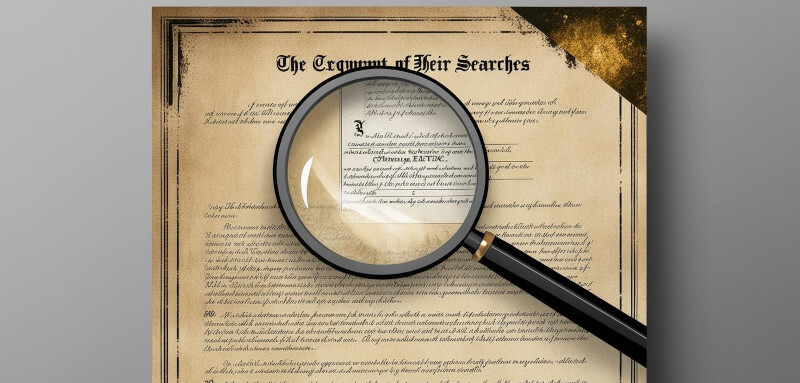Jump to Section
Summary
When conducting heir searches, attorneys often face several pitfalls that can delay or complicate the probate process. From incorrect documentation to inadequate research techniques, these common mistakes can significantly impact the outcome. This article outlines frequent challenges lawyers encounter, provides a clear step-by-step process for successfully navigating heir searches, and includes expert tips to avoid these missteps. Learn how to enhance your approach and ensure you’re serving your clients effectively.
Overview
Heir searches are a crucial part of the probate process. They determine who is entitled to inherit a deceased person’s property, ensuring that assets are distributed according to the law. Attorneys play a pivotal role in this process, but they can sometimes overlook important details. Addressing these oversights can ultimately lead to smoother probate proceedings.
Common Challenges
- Incomplete Documentation: Skipping essential paperwork can lead to unnecessary delays.
- Overlooking State Laws: Each state has unique probate laws that attorneys must navigate carefully.
- Poor Research Methods: Using outdated practices or failing to leverage modern genealogy tools can result in missed heirs.
- Lack of Communication: Not maintaining open lines with clients or relevant parties can obstruct progress.
- Neglecting to Verify Information: Failing to double-check names and relationships can lead to incorrect heir determinations.
Step-by-Step Process
Navigating an heir search doesn’t have to be daunting. Following a structured approach can help attorneys avoid common pitfalls:
1. Gather Initial Information
Collect all documentation related to the deceased, including wills, trust documents, and financial records. This is your foundation.
2. Identify Potential Heirs
Compile a list of known relatives, which may include spouses, children, grandchildren, siblings, and parents.
3. Conduct Thorough Research
Utilize a variety of resources, such as online databases, county records, and social media. Don’t hesitate to enlist the help of professionals who specialize in genealogy if necessary.
4. Verify Findings
Check all information against multiple sources to ensure accuracy. Discrepancies should be investigated thoroughly.
5. Document Everything
Maintain a detailed log of your findings and the sources you consulted. This not only helps in presenting your case but also strengthens your position if any disputes arise.
6. Communicate with Stakeholders
Keep open lines of communication with your clients, any discovered heirs, and other legal parties involved in the probate process.
FAQs
- What should I do if I can’t locate an heir? Consider hiring a professional heir search company or employing genealogy services to assist.
- Are all heirs automatically entitled to assets? No, entitlement can depend on the presence of a will, state laws, and whether any heirs have renounced their rights.
- How can I ensure my heir search is thorough? Use multiple research methods, verify all findings, and keep detailed records.
- What if new heirs come forward after the estate has been distributed? This may lead to legal issues; consult with an estate attorney for guidance on how to proceed.
- Can heirship disputes be resolved outside of court? Many disputes can be negotiated through mediation, although some may require legal intervention.
Expert Tips
- Stay Updated: Laws and procedures can change. Regularly review state-specific probate regulations to ensure compliance.
- Utilize Technology: Explore software and online platforms that facilitate genealogy research. Modern tools can speed up your findings and enhance accuracy.
- Network with Other Professionals: Establishing relationships with genealogists, private investigators, and estate planners can aid in more comprehensive searches.
- Be Patient: Heir searches can take time. Rushing the process increases the likelihood of errors.
- Consider HeirPros Services: For assistance in finding missing heirs, consider utilizing a professional service like HeirPros.com, which specializes in heir search and verification.
Related Resources
For more detailed information, consider exploring resources such as:




